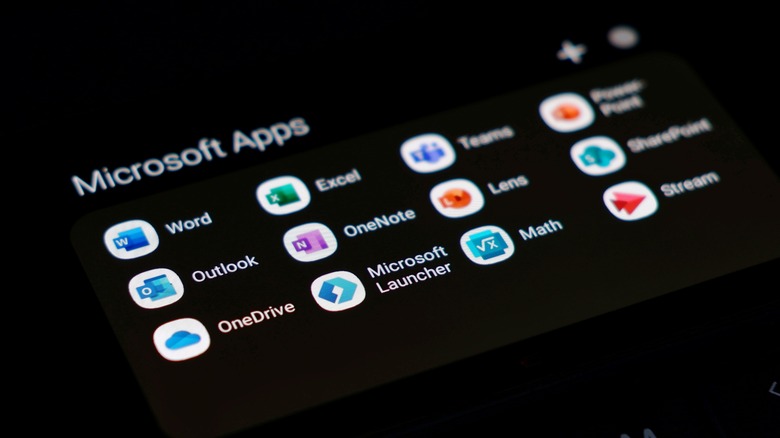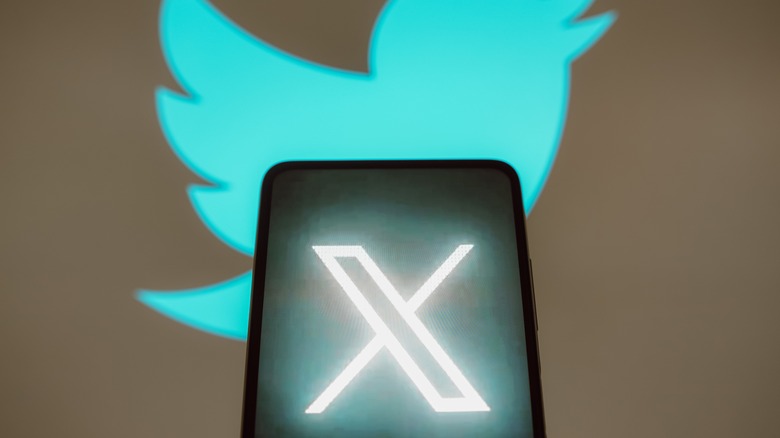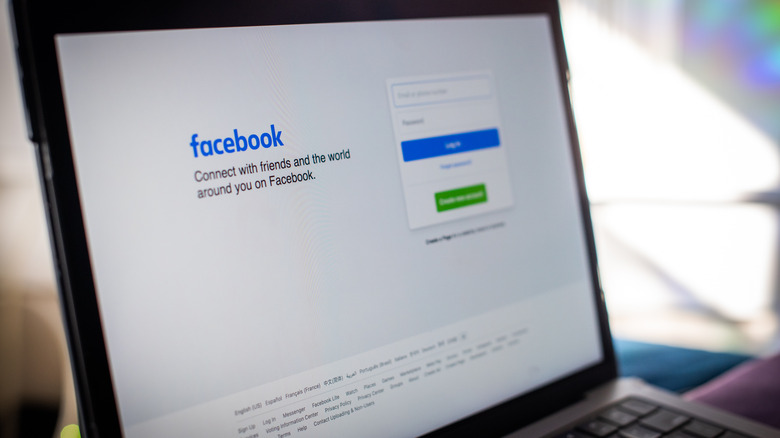10 Major Brands That Will Delete Your Account For Inactivity
Ubisoft recently drew headlines when it announced it would begin closing accounts that had been inactive for a long period of time, prompting concerns from users that the purchased games attached to those accounts could be lost forever. The games giant has now confirmed that it won't close accounts that have PC games or active subscriptions attached to them. It will also send multiple warning emails before closing any account, but some gamers are still concerned. Many of those gamers, in fairness, might be biased against the company in the first place thanks to its many recent missteps and broken promises.
The brand's policy change has also drawn renewed attention to other large tech and commerce companies that require accounts to access their services. Many of these entities have their own policies that could see accounts shuttered for good if they're not logged into enough. In most cases, you'll need to leave your account dormant for an exceptionally long period before it's deactivated, but some brands reserve the right to delete accounts after as little as 30 days if they're not used.
With that in mind, we've put a quick roundup of the biggest companies with inactive account policies you should be aware of. Here are ten major tech companies that may deactivate your account if it goes dormant for too long.
It's not just Ubisoft that recently updated its terms to include an inactive account policy. Google announced in May that any unused accounts might be deleted entirely, with photos, Gmail, and Drive documents all erased. Although the policy became active as soon as it was announced, Google confirmed that it wouldn't be deleting any accounts until December 2023, with the first accounts deleted being those that were created and never logged into again. So, there's no need to be concerned yet if you have a Google account you haven't used in a while.
After the initial wave of accounts are deleted, Google's standard policy will be to delete accounts that have been inactive for more than two years. Before deletion, the company will first send users several warning emails to both the Gmail address associated with the account and the recovery email address — assuming one has been set up.
There are some exemptions, however. Any account with a current subscription (either to a Google product or a third-party app) won't be counted as inactive. Neither will accounts with videos uploaded to YouTube. However, having files on Drive or Google Photos does not qualify for an exemption, so you'll have to be sure to log in to the account at least once every two years to avoid potential account deletion.
Microsoft
Much like Google, Microsoft also requires users to log into their account at least once every two years to avoid deletion. Closure of the account will mean the loss of all associated data, including OneDrive files, but there are several key exceptions to the two-year rule. Microsoft's policy states that accounts used to purchase a current Microsoft product or service will still be deemed active even if they're not logged into after the two-year period, alongside any accounts that have an active subscription associated with them.
Other exemptions include accounts where certification has been earned, those with an active balance either unspent or owed, and those that have published apps or games to the Microsoft Store. Family accounts -– specifically, those linked to the active account of a minor –- will also not be closed. Any account that gets locked by Microsoft and where the user makes no attempt to recover the account will also be deemed inactive and potentially deleted, according to the policy.
The social media platform officially known as X, but most people will still recognize as Twitter, has a particularly stringent inactivity policy that was rolled out under current owner Elon Musk. The billionaire tweeted in May to be in the process of "purging accounts that have had no activity at all for several years." However, the brand's official policy states that users should log in at least once every 30 days to ensure their account remains active. There are several problems that could arise with deleting old accounts, including the loss of tweets from users who have passed away, but Musk claimed accounts could be archived to combat this.
The exact criteria for an account to be deemed inactive remain unclear, as Twitter's official policy only states that "prolonged inactivity" can lead to them being "permanently removed." This appears to contradict Musk's assertion that accounts would be archived after their handles were freed up.
If we were being cynical, we might suggest that the official recommendation to log in at least once every 30 days was a thinly-veiled attempt from Musk to boost his site's monthly active user count in a bid to convince top advertisers to return. However, to be on the safe side, it's probably best to heed the official advice if you're concerned about losing your account.
Amazon
Although the Conditions of Use of an Amazon account don't specify any limits regarding inactive accounts, customers of certain Amazon services are at risk of losing their stored files if they don't log in for over two years. According to the brand's File Retention Policy, users without an active subscription will be notified after 18 months of inactivity that their files are at risk of deletion, and after two years, the files will be permanently deleted. This policy applies across Amazon Photos, Amazon Drive, Amazon Prints, and Family Vault.
This shouldn't affect the status of an overall Amazon account, but any files associated with that account may not be recoverable even if the account itself is logged into at a later date. It's worth reiterating here that the inactivity policy only applies to accounts that aren't paying for a subscription to those services -– if you're currently paying for Amazon Drive or any of the other services listed, there's no need to worry.
eBay
Another retail giant with a closure policy on inactive accounts is eBay, although its wording is vague at best. In the User Agreement, eBay states that it "may cancel unconfirmed accounts or accounts that have been inactive for a substantial period of time" but doesn't specify what it considers to be substantial. User reports on the inactivity time of closed accounts vary, with some reports claiming that accounts that had multiple purchases and sales were deleted after a couple of years of inactivity and some claiming they still could log into accounts that hadn't been used in a decade.
Once an account is deleted, it is permanent and cannot be recovered. Like many large commerce sites, eBay has had issues in the past with scammers taking over dormant accounts, which is likely the reason for its closure policy. However, that's of little comfort to a seller or buyer who may lose years of positive feedback and sales data if their account is deleted.
Another common target for scammers is dormant accounts on social media sites. It's always worth enabling 2-factor authentication for an extra layer of security, but many older, dormant accounts will lack this and may have weak or reused passwords to boot. To prevent such attacks, Facebook's policy is to delete unconfirmed accounts after a year and delete accounts it detects as hacked after a year if the original owner makes no attempt to reclaim them.
In addition, Facebook also says it will close accounts that are both unused and inactive after "an extended period of time," although it does not confirm exactly how long it considers that period to be. In general, logging in to your Facebook account at least once a year should ensure it isn't flagged as inactive, but if you haven't logged in for more than a year, the account is unlikely to be closed unless Facebook flags it as compromised in some way.
Twitch
In a bid to stop dormant accounts from hogging desirable usernames, Twitch announced a Username Rename & Recycling Policy in 2017. Accounts deemed inactive –- that is, those that have not been logged into within the last 12 months [-– can be deleted, with the user data associated with that account also permanently wiped. This includes content like previous broadcasts as well as watch history.
Once the account is deleted, the username eventually gets "recycled" and becomes available for other users to claim, although Twitch says it holds usernames for a period of at least six months between account deletion and release for other users.
In theory, that means it's possible to reclaim the username of a deleted inactive account with a new profile, but if you do, any original history, content, or personal data will not be carried over. To avoid the risk of an account being flagged as inactive, aim to watch a stream or start a broadcast at least once a year.
Nike
Alongside serving as a login to the Nike web store and SNKRS app, a Nike account also gives members access to the popular Run Club and Training Club fitness apps. In line with its Data Protection Policy, Nike restricts access to certain user data after two years of account inactivity, with Nike Run Club and Nike Training Club seeing the biggest changes. For both apps, once the two-year inactivity mark is crossed, data from runs and workouts will be unavailable to access and instead be replaced with single lifetime totals. This won't affect access to Nike apps, and personal data will still be retained.
After a period of five years of inactivity, Nike will delete the account permanently, with users losing access to both their fitness app data and order history from Nike and SNKRS. This is not recoverable, but former members with deleted accounts can still sign up to make a new account with the same details if they decide to use either the apps or web stores again at a later date.
Netflix
A policy change in 2020 saw Netflix automatically cancel the accounts of users who didn't log in after 12 months to ensure people hadn't signed up for the service and then forgotten about it. Users who pay for a subscription but don't log in after that time are sent an email asking if they'd like to continue paying for their subscription, and if they don't confirm that they do want to continue, Netflix halts their subscriptions. After payments stop, a user's viewing history, recommendations, and ratings are kept for a further 10 months. If the user doesn't resubscribe to the service, they're permanently deleted.
However, the account itself can still be used to restart a subscription at a later date, even if all of the information associated with it will be gone. Netflix might have plenty of other annoying issues, but thanks to the revised policy, at least forgetting about your subscription and paying when you don't use the service isn't one of them.
Uber
Another of the more vague account deletion policies is Uber, whose Scheduled Account Deletion promises to close accounts that have been inactive for "an extended period of time."
Like many of the other big tech firms here, the company doesn't define exactly what it considers to be an "extended period," giving it free rein to delete accounts essentially as and when it sees fit. Before an account is deleted, Uber will send users a message via its app, through email, or through SMS to inform the user of the impending closure.
If no response is received after a "waiting period," the account will be shut down, and the data associated with it will be no longer recoverable. This will apply across all services that use the Uber account, including Uber Eats. Once the account has been deleted, it's still possible to sign up for the platform again using the same details, but none of the data will be carried over.










